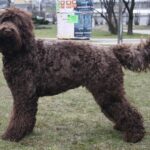
Introduction
Choosing the right dog breed is crucial for families and individuals alike. With so many breeds to consider, understanding their temperament can significantly impact pet ownership experiences. Least aggressive dog breeds are often sought after by those who want a gentle and friendly companion. Aggression in dogs can lead to behavioral issues that may not only affect the dog’s well-being but also the safety and comfort of the family.
Definition of Aggression in Dogs
Aggression in dogs can manifest in various forms, including barking, growling, biting, and more. It is important to note that aggression is not a trait inherent to any specific breed, but rather a behavior influenced by multiple factors. Common misconceptions often label certain breeds as aggressive without considering the individual dog’s environment and upbringing.
Importance of Understanding Dog Breeds
Selecting a breed known for its gentle temperament can lead to a more harmonious household. Understanding the characteristics of least aggressive dog breeds can provide potential dog owners with the confidence to make informed decisions. We will explore the criteria used to determine which breeds are considered the least aggressive, focusing on temperament, socialization, and upbringing.
Understanding Dog Aggression
Types of Aggression
Understanding the types of aggression can help in identifying and managing behavioral issues in dogs.
- Fear-based aggression: This occurs when a dog feels threatened and may react defensively.
- Territorial aggression: Dogs may exhibit aggression when they perceive their space is being invaded.
- Protective aggression: Some dogs become aggressive when they feel the need to protect their owners or belongings.
- Social aggression: This can arise in situations where dogs feel the need to assert dominance or establish social hierarchy.
Factors Influencing Aggression
Several factors contribute to a dog’s level of aggression, including:
- Genetics and breed tendencies: Certain breeds have traits that can predispose them to certain behaviors.
- Environment and upbringing: A dog raised in a nurturing environment with proper socialization is less likely to display aggression.
- Socialization and training: Proper training and exposure to different environments can significantly reduce aggressive tendencies.
Criteria for Selecting Least Aggressive Dog Breeds
Temperament Assessment
Temperament testing is essential in determining a dog’s behavior. This assessment evaluates a dog’s reactions to various stimuli, which can be a predictor of future behavior. Early socialization is crucial; it helps dogs learn to interact positively with people and other animals, reducing the likelihood of aggression.
Breed Characteristics
Understanding the historical roles of dog breeds can provide insight into their temperament. For example, breeds developed for companionship, like the Golden Retriever, often exhibit gentle and friendly traits. Furthermore, size and energy levels can also play a role; smaller, lower-energy breeds tend to be less aggressive.
Reliability of Breed Labels
While breed labels can provide general information, it is essential to recognize the variability within breeds. Individual assessments are crucial as each dog has its own personality shaped by genetics, environment, and training.
Top 10 Least Aggressive Dog Breeds
Breed Profiles
Golden Retriever
The Golden Retriever is renowned for its friendly and tolerant attitude. They are adaptable and eager to please, making them perfect for families. Their gentle nature and intelligence also facilitate training, reducing the likelihood of aggressive behavior.
Labrador Retriever
Labrador Retrievers are known for their fun-loving and friendly demeanor. They thrive on human interaction and are highly trainable. Their energetic nature makes them ideal companions for active families, and their sociable personality minimizes aggression.
Cavalier King Charles Spaniel
The Cavalier King Charles Spaniel is affectionate and playful, making it an ideal pet for families with children. Their gentle temperament and friendly disposition help create a harmonious environment, making aggression very rare.
Bichon Frise
The Bichon Frise is a cheerful and playful breed known for its low aggression tendencies. They enjoy being around people and other pets, making them excellent companions for families and individuals alike.
Poodle (Standard and Miniature)
Poodles are intelligent and trainable, making them a favorite for many dog owners. Their friendly and adaptable nature means they can fit into various living situations without exhibiting aggressive behavior.
Beagle
Beagles are friendly, curious, and sociable dogs. Their gentle disposition makes them great companions, especially for families. With proper training and socialization, Beagles typically do not show aggression.
Shih Tzu
The Shih Tzu is known for its calm demeanor and adaptability. This breed enjoys being around people and is often good with children, making it suitable for families looking for a gentle companion.
Newfoundland
Newfoundlands are often referred to as “gentle giants” due to their calm and patient nature. Their affectionate disposition makes them great family pets, and they tend to be very low in aggression.
Cocker Spaniel
Cocker Spaniels are friendly and gentle, making them a popular choice for families. Their loving nature and strong bonds with their owners contribute to their reputation as one of the least aggressive dog breeds.
Basenji
The Basenji is known for its independent nature, but they are also affectionate with their families. This breed is less likely to exhibit aggression if properly socialized, making them a unique and gentle companion.
Training and Socialization for a Peaceful Pet
Importance of Early Training
Early training and socialization are vital in helping dogs develop into well-adjusted adults. The critical period for socialization typically occurs between 3 and 14 weeks of age. During this time, exposing your puppy to various environments, people, and other animals can prevent future aggression.
Techniques for Positive Reinforcement
Positive reinforcement is a highly effective training method. This involves rewarding desired behaviors with treats, praise, or playtime, encouraging dogs to repeat those behaviors. By focusing on positive reinforcement, owners can foster a trusting relationship with their pets, reducing the likelihood of aggression.
Ongoing Socialization Strategies
Socialization should continue throughout a dog’s life. Regular exposure to different environments, people, and other dogs can help maintain a peaceful demeanor. Activities such as dog parks, obedience classes, and playdates can contribute to a well-socialized dog.
Professional Training Resources
For those needing additional support, consider enrolling in training classes or hiring a professional trainer. These resources can provide valuable guidance in training techniques and socialization strategies, ensuring a well-behaved, non-aggressive pet.
Conclusion
Choosing the right breed is essential for ensuring a positive pet ownership experience. Understanding the characteristics of least aggressive dog breeds can help potential owners select a gentle and friendly companion. Breeds like the Golden Retriever, Labrador Retriever, and Cavalier King Charles Spaniel exemplify qualities that foster loving relationships and minimize aggression.
Owning a gentle and friendly dog can bring immense joy and companionship. For those considering dog ownership, understanding the temperament of different breeds is a crucial step in ensuring a harmonious home.
FAQs
What are the most common traits of least aggressive dog breeds?
Least aggressive dog breeds typically display traits such as friendliness, adaptability, and a calm demeanor. These breeds are often social and enjoy being around people and other pets.
Can a dog’s aggression change over time?
Yes, a dog’s aggression can change over time based on experiences, training, and socialization. Proper training and a nurturing environment can help reduce aggressive tendencies.
How can I ensure my dog remains non-aggressive?
Consistent training, positive reinforcement, and ongoing socialization are key to maintaining a non-aggressive demeanor. Regular interaction with different people and environments also helps.
What should I do if I encounter aggressive behavior?
If you encounter aggressive behavior, it is essential to remain calm and avoid confrontation. Seek professional help from a trainer or behaviorist to address the underlying issues effectively.









